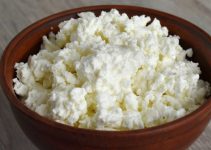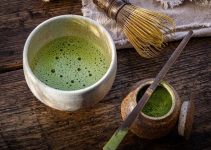Curcumin, the active ingredient in turmeric, is a powerful anti-inflammatory agent that’s surprisingly good for your body.
In this article, you will learn about the health benefits of turmeric and how to use it for pain relief, depression, and more.
Read on to see the top health benefits of turmeric:
Turmeric Health Benefits

1. Turmeric Protects Your Body From Free Radicals
Starting in the late 1990s, researchers starting looking into the benefits of turmeric. They discovered that it could fight inflammation and cancer cells.
According to a review, curcumin produces many compounds that can scavenge free radicals, control enzymes, and prevent the production of specific free radicals by enzymes.
Studies have shown that turmeric has potent antioxidants, and the antioxidant activity may be responsible for its many health benefits.
Scientists have studied turmeric for years because of its ability to help your body from free radicals, which lead to chronic diseases like heart disease and cancer.
2. Curcumin in Turmeric Has Anti-Cancer Properties
Cancer is a disease where cells in the body divide uncontrollably.
There are many types of cancer, which can form anywhere in the body. Cancer can also spread to other parts of the body.
There is evidence that shows curcumin, an antioxidant present in turmeric, has anti-cancer properties.
Curcumin is a polyphenol derived from turmeric and could be an effective drug for cancer therapy.
Recent studies have shown that curcumin inhibits the STAT3 and NF-κB signaling pathways, both play a crucial role in cancer development.
The same studies also found the inhibition of SP-1 and its housekeeping gene expressions could serve as an essential hypothesis to prevent cancer formation, migration, and invasion.
Scientists have found that turmeric has antioxidant properties comparable to other well-known antioxidants like vitamin E or C.
Besides, turmeric has been found to have some anticarcinogenic properties, meaning it may help prevent cancer by blocking the initiation and promotion stages of cancer cell growth.
3. Can Help Fight Alzheimer’s Disease
Alzheimer’s disease is a progressive brain disorder that destroys memory and thinking skills, and eventually even the ability to carry out the simplest tasks.
Researchers believe that in about 60% of people, the first symptoms are forgetfulness and confusion.
Curcumin has many medical benefits, and now there is also some evidence to suggest that it can help prevent Alzheimer’s disease.
It has anti-inflammatory properties, which might help with the inflammation in Alzheimer’s, as well as helping to slow down protein buildup in the brain.
Curcumin has been shown to be effective for the treatment and prevention of Alzheimer’s disease.
It may maintain the typical structure and function of vessels, mitochondria, and synapses in the brain.
It also may reduce the risks of chronic diseases & decrease the risk of Alzheimer’s disease.
According to recent findings, Alzheimer’s patients are defective in the process of phagocytosis of amyloid-beta.
In addition, curcuminoids might enhance amyloid-beta uptake by macrophages of Alzheimer’s patients.
4. May Help Fight Depression
Depression is a mental illness that affects millions of people around the world.
It is a mood disorder characterized by a persistently low mood that affects how individuals think, feel, and behave.
The exact causes of depression are not known, but it’s believed to be related to a combination of biological (genetics), environmental (stressors), and developmental factors.
Curcumin, a natural component of the spice turmeric, has been found to have antidepressant properties. It is very safe and can be consumed in food or taken as a supplement.
A study provides clinical evidence that curcumin may be a safe and effective treatment for depression without concurrent suicidal ideation or other psychotic disorders.
Curcumin has shown promising efficacy when it comes to major depression in various animal models.
Curcumin also appears to have similar effects on the levels of brain-derived neurotrophic factor BDNF as antidepressants.
Although the actual mechanism of curcumin’s antidepressant effect is not yet fully understood, it is assumed to work via inhibition of the monoamine oxidase enzyme and modulating serotonin and dopamine levels.
5. It’s a Potent Anti-Inflammatory Agent
Curcumin is a naturally occurring yellow coloring agent that is extracted from turmeric.
It has potent antioxidant and anti-inflammatory properties, making it a natural remedy for preventing and treating chronic diseases.
Oxidative stress is a condition that occurs when the production of free radicals exceeds the body’s ability to neutralize them. It can damage cells, tissues, and DNA.
Chronic inflammation is the body’s response to this damage and can be triggered by oxidative stress.
This article will give you scientific knowledge about how oxidative stress activates inflammatory pathways, leading to the progression of chronic diseases.
Based on research so far, chronic inflammation, oxidative stress, and most chronic diseases are all closely linked.
Curcumin is rich in antioxidants, and the health benefits are wide-ranging and significant.
It can thus play a vital role in the treatment and prevention of chronic inflammation diseases.
6. Curcumin May Help to Treat Dermatitis
Dermatitis is a chronic, itchy skin condition caused by genetics, the environment, or both.
The disease often results from an interaction between these factors.
Iatrogenic dermatitis is a type of inflammatory skin condition that can result from medical procedures or drugs.
Radiation-induced dermatitis is one of the most common iatrogenic that dermatologists see in their patients, but allergic contact dermatitis can also be related to the medicines applied by doctors.
Several studies have found that curcumin is a natural, safe, and inexpensive treatment for the management of iatrogenic dermatitis.
A clinical study found that taking oral curcumin (6 g/day) during radiation therapy sessions might decrease the severity of radiation-induced dermatitis in breast cancer patients.
7. Curcumin May Prevent Eye Degeneration
Curcumin has been shown to reduce degeneration of the retina.
Within the retina, there are millions of tiny cells called photoreceptor cells. When light hits these cells, they trigger electrical signals sent to the brain via a network of neurons.
These photoreceptor cells have been one of the first things affected by age-related macular degeneration (AMD).
Curcumin has been shown to protect these photoreceptor cells. The researchers found that when curcumin was administered, it reduced the death of retinal neurons by up to 50%.
A study posted in Scientific Reports founds topical curcumin to be effective in protecting eye degeneration.
According to researchers, rats who didn’t receive daily doses of proprietary curcumin eye drops were found to have an average of 23% fewer retinal cells than those given the solution.
The findings suggest that the curcumin treatment prevented the loss.
The study findings are impressive. However, more studies are needed to see if curcumin can prevent eye degeneration in humans.
8. Curcumin May Lower Your Risk of Heart Disease
Cardiac diseases are the leading cause of death worldwide.
One of the main reasons cardiac diseases are so prevalent is that there is no “cure” for them.
However, studies have shown that people can drastically lower their risk by changing their lives by eating a healthy diet and maintaining a healthy weight.
Some researchers believe that curcumin may be beneficial in preventing or treating heart disease.
People at low risk for heart disease have high levels of curcumin.
Previous research has shown that curcumin is a natural therapeutic product with antioxidative, anti-apoptotic, and anti-inflammatory properties.
Curcumin is great for your heart because it improves the lining of the blood vessels.
The main benefit of curcumin when it comes to heart disease is improving the function of the endothelium, the lining of your blood vessels.
This lining regulates blood pressure and prevents clotting, so a healthy endothelium is essential for cardiovascular health.
A study proves that taking curcumin for 12 weeks may improve vascular function in healthy middle-aged and older adults.
Patients showed reduced oxidative stress and better nitric oxide bioavailability.
9. Can Help Fight Arthritis
Arthritis is the most common cause of disability in the United States.
It is a condition where one or more joints have chronic damage to the bones, cartilage, and other tissue, leading to pain and swelling.
The condition typically affects people over 45 years of age, with women affected three times as often as men.
Curcumin is a potent anti-inflammatory, so it makes sense that it might help with arthritis.
Several studies show that there is an association.
According to a study, curcumin treatment appears safe for patients with active rheumatoid arthritis and is not associated with any severe side effects.
10. May Help Treat Acne
Turmeric can help improve your mood and skin conditions like acne, psoriasis, and eczema.
It also contains anti-inflammatory compounds to reduce inflammation and promote tissue health.
Turmeric is not only good for the skin but can also be used to treat migraines and pain.
Scientific evidence suggests that curcumin may be a potential and up-and-coming treatment option for bacterial and fungal skin diseases such as acne, overcoming pathogens’ multi-drug resistance.
11. Curcumin May Help Delay Aging and Improve Longevity
Aging is often seen as a process where a person’s health deteriorates.
They have an increased chance to become ill & develop age-related diseases such as cancer, atherosclerosis, Alzheimer’s disease, and metabolic disorders.
Curcumin has shown promising results in delaying aging and improving longevity.
Research shows that curcumin can be a potent antioxidant and anti-inflammatory agent that can delay aging, improve longevity, and protect brain cells from degeneration.
A review has shown the potential benefits of curcumin on the health status of the elderly.
This powerful antioxidant and anti-inflammatory agent can improve health status.
Blocking the NF-kappaB-dependent inflammation may lead to slowing aging and delaying the onset of age-related diseases.
12. Curcumin May Help Ease Symptoms of Osteoarthritis
Osteoarthrosis, or osteoarthritis, is a chronic condition caused by the breakdown of cartilage and bone within a joint.
The result is pain, stiffness, decreased range of motion (ROM), and reduced function.
Osteoarthritis, also known as degenerative joint disease, is inflammatory arthritis that primarily affects weight-bearing joints, such as the hips, spine, and knees.
Also, osteoarthritis is among the most common form of arthritis in adults.
Curcumin may help ease the symptoms of osteoarthritis by reducing inflammation in joints and cartilage.
A study in mice shows evidence that curcumin significantly slows osteoarthritis disease progression.
There is evidence showing that curcumin may help to slow the progression and symptoms of osteoarthritis.
Curcumin provides potent anti-inflammatory, oxidative stress suppressing, and catabolic activity to continue to worsen this condition.
13. Turmeric May Improve Skin Health
The curcumin in turmeric may be the key to more radiant skin.
According to a study published this week in the medical journal “Nutrients,” curcumin supplements can significantly reduce skin inflammation and the adverse effects of aging.
One study has found that it can even help with aging by reducing wrinkles and fine lines while improving complexion and elasticity.
Moreover, curcumin enhanced the skin barrier function by up-regulating involucrin (iNV) and filaggrin (FLG).
Turmeric can help your skin by:
- Alleviating redness and inflammation
- Reducing the appearance of blemishes
- Treating acne
- Controlling “the shine” on your skin
New research suggests that turmeric’s active ingredient curcumin may help with skin health.
A study published in Dermatologic Therapy found that eight weeks of using a topical cream containing turmeric extract was more effective than a placebo in decreasing the appearance of wrinkles and increasing skin moisture content.
14. Curcumin Can Be Helpful To Treat Psoriasis
Psoriasis is a skin condition where the immune system attacks healthy skin cells.
It can cause dry, itchy, and red patches on the skin, which are visible.
In the past few years, an increasing number of studies have shown curcumin to be a viable and safe option for psoriasis.
Curcumin is a crucial component of turmeric that has natural anti-inflammatory and antioxidant properties.
People can use it to treat psoriasis by reducing inflammation.
One study shows curcumin, with its antioxidative property, may reduce the oxidative stress of psoriatic lesions.
Researchers found curcumin’s therapeutic efficacy might be correlated with its ability to inhibit protein kinases, which increase in patients with psoriasis.
Curcumin has been shown to inhibit the activity of a protein known as TNF-alpha in psoriasis patients.
This protein causes inflammation in the body through an inflammatory process known as NF-kappa B.
Curcumin also helps to reduce symptoms caused by psoriasis by inhibiting COX enzymes that produce pro-inflammatory prostaglandins.
15. Turmeric May Help Prevent Diabetes
Turmeric is a natural ingredient that can be used to help prevent diabetes.
Many studies have been conducted to find out the relationship between Turmeric and Diabetes.
One of these studies found that the consumption of turmeric as an ingredient reduced blood sugar levels by 22%.
When you combine turmeric with black pepper, it is even better as the black pepper improves the absorption of curcuminoids, which makes up turmeric’s healing properties.
Studies in animal models show that curcumin extract can help delay the development of diabetes.
16. Curcumin May Speed Up Wound Healing
Curcumin has been shown to improve the rate of wound healing by reducing inflammation and stimulating blood flow.
It also improves collagen production in the skin and increases skin thickness.
Curcumin also helps in increasing levels of Vitamin C which further enhances skin health.
The spice turmeric is a great way to introduce beneficial curcumin into your diet daily as it has so many other benefits on top of speeding up wound healing.
A study found patients with diabetic wounds treated with curcumin-loaded chitosan nanoparticles impregnated into collagen-alginate scaffolds reported a faster healing process than those receiving a placebo.
17. Curcumin May Help Treat Skin Cancer
Melanoma is one of the most severe types of skin cancer and is on the rise.
It’s responsible for 75% of all skin cancer deaths and can be challenging to detect.
One reason for this is that there are no telltale signs or symptoms, and it often goes undetected until it’s in later stages when it becomes more dangerous.
Non-melanoma skin cancer and basal and squamous cell carcinomas are the most common type of cancer in humans.
Studies on animal models have shown that curcumin is effective against melanoma, and it’s best when used in a formulation that improves its bioavailability.
As discussed before, curcumin has been found to work with conventional anti-melanoma drugs and may have quite promising results.
However, more studies are needed to confirm its effectiveness.
18. Curcumin Has Benefits Against Anxiety
Curcumin has been shown to improve mood and reduce anxiety.
Studies show that curcumin can help reduce anxiety-related behavior and symptoms in some ways:
- It reduces the level of stress hormones in the body
- Curcumin also stimulates the production of serotonin, which helps regulate mood
- Moreover, it inhibits the COX2 enzyme, which produces prostaglandins that contribute to inflammation.
19. Curcumin May Help Reduce Muscle Damage
The results of the latest studies suggest that taking supplements with antioxidants can help reduce muscle damage.
Curcumin is a powerful antioxidant found in turmeric that can help reduce muscle damage.
Curcumin is a possible preventative and therapeutic agent for muscle injury. This compound inhibits the inflammatory process that is associated with a muscle injury.
It functions as an antioxidant which means it can help reduce oxidative stress in our muscles.
One study found that curcumin can help reduce muscle damage in people who exercise vigorously.
20. May Help Reduce Itchy skin (pruritus)
Itchy skin is an uncomfortable sensation that makes you want to scratch.
It is also known as ‘pruritus.’ Being bothered by itchy skin can affect a person’s mood and be uncomfortable.
Some studies found curcumin may help reduce pruritus (itchy skin).
Due to the limitations of existing studies, more research is needed to know if these types of interventions are effective.
However, they have the potential to be beneficial and warrant more investigation.
Conclusion
In addition to this, curcumin can stimulate the immune system and function as a powerful antioxidant.
Curcumin is the ingredient that gives turmeric its distinctive color.
Curcumin is a powerful antioxidant that provides many health benefits, such as fighting inflammation, one of the critical causes for many chronic diseases like heart disease, diabetes, cancer, and Alzheimer’s disease.
More and more studies have been done on the positive effects of turmeric and its health benefits to fight conditions like arthritis, ulcerative colitis, depression, and anxiety.





